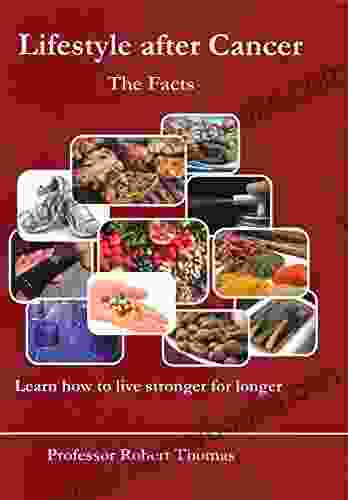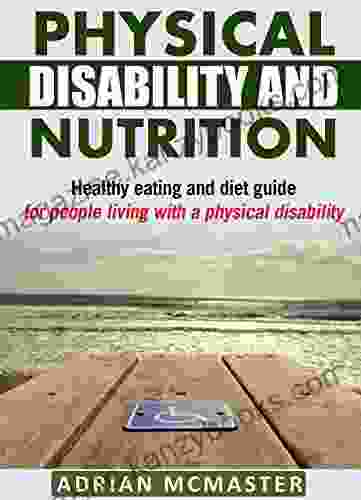Complete Guide to Ulcers: Symptoms, Causes, Diet, and Treatment

Ulcers are a common digestive issue that can affect people of all ages. They are sores that develop in the lining of the stomach or small intestine. Ulcers can cause a variety of symptoms, including abdominal pain, burning, indigestion, nausea, and vomiting. In some cases, ulcers can lead to serious complications, such as bleeding or perforation.
5 out of 5
| Language | : | English |
| File size | : | 1027 KB |
| Text-to-Speech | : | Enabled |
| Screen Reader | : | Supported |
| Enhanced typesetting | : | Enabled |
| Word Wise | : | Enabled |
| Print length | : | 67 pages |
| Lending | : | Enabled |
There are two main types of ulcers: gastric ulcers and duodenal ulcers. Gastric ulcers occur in the stomach, while duodenal ulcers occur in the first part of the small intestine (the duodenum). Both types of ulcers can be caused by a variety of factors, including infection with the bacteria Helicobacter pylori (H. pylori),use of nonsteroidal anti-inflammatory drugs (NSAIDs),and acid reflux (GERD).
Treatment for ulcers typically involves taking medication to reduce stomach acid and kill H. pylori bacteria. In some cases, surgery may be necessary to treat an ulcer that has caused a serious complication.
Symptoms of Ulcers
The symptoms of ulcers can vary depending on the type of ulcer and its location. Common symptoms of ulcers include:
- Abdominal pain: This is the most common symptom of ulcers. The pain is typically burning or gnawing in nature and occurs in the upper abdomen.
- Burning: This is a burning sensation in the upper abdomen that can occur after eating or drinking.
- Indigestion: This is a feeling of discomfort or fullness in the upper abdomen that can occur after eating.
- Nausea: This is a feeling of queasiness or vomiting.
- Vomiting: This is the forceful expulsion of stomach contents through the mouth.
- Bleeding: This can occur if an ulcer erodes a blood vessel. Bleeding can be mild or severe, and it can lead to anemia.
- Perforation: This is a rare but serious complication of ulcers that occurs when an ulcer erodes all the way through the stomach or intestinal wall. Perforation can lead to peritonitis, a life-threatening infection of the abdominal cavity.
Causes of Ulcers
There are a variety of factors that can contribute to the development of ulcers. These include:
- Helicobacter pylori (H. pylori) infection: H. pylori is a bacteria that can infect the stomach and small intestine. It is the most common cause of ulcers.
- Use of nonsteroidal anti-inflammatory drugs (NSAIDs): NSAIDs, such as ibuprofen and naproxen, can damage the lining of the stomach and small intestine, leading to ulcers.
- Acid reflux (GERD): Acid reflux is a condition in which stomach acid backs up into the esophagus. This can damage the lining of the esophagus and stomach, leading to ulcers.
- Smoking: Smoking can increase the risk of ulcers by damaging the lining of the stomach and small intestine.
- Alcohol use: Alcohol can irritate the lining of the stomach and small intestine, leading to ulcers.
- Stress: Stress can increase the production of stomach acid, which can lead to ulcers.
Diet for Ulcers
A healthy diet can help to reduce the symptoms of ulcers and promote healing. Some foods that are good for ulcers include:
- Fruits and vegetables: Fruits and vegetables are high in fiber, which can help to protect the lining of the stomach and small intestine.
- Whole grains: Whole grains are also high in fiber, and they can help to slow down the absorption of sugar, which can help to prevent acid reflux.
- Lean protein: Lean protein, such as chicken, fish, and beans, can help to repair the lining of the stomach and small intestine.
- Low-fat dairy products: Low-fat dairy products can help to neutralize stomach acid and protect the lining of the stomach and small intestine.
Some foods that should be avoided if you have ulcers include:
- Spicy foods: Spicy foods can irritate the lining of the stomach and small intestine.
- Fatty foods: Fatty foods can slow down the absorption of food, which can lead to acid reflux.
- Acidic foods: Acidic foods, such as citrus fruits and tomatoes, can irritate the lining of the stomach and small intestine.
- Caffeine: Caffeine can stimulate the production of stomach acid, which can lead to ulcers.
- Alcohol: Alcohol can irritate the lining of the stomach and small intestine, and it can also increase the production of stomach acid.
Treatment for Ulcers
Treatment for ulcers typically involves taking medication to reduce stomach acid and kill H. pylori bacteria. Common medications used to treat ulcers include:
- Proton pump inhibitors (PPIs): PPIs are the most effective medication for treating ulcers. They work by blocking the production of stomach acid.
- Histamine-2 receptor antagonists (H2RAs): H2RAs also reduce the production of stomach acid, but they are not as effective as PPIs.
- Antacids: Antacids neutralize stomach acid and can provide quick relief from the symptoms of ulcers.
- Antibiotics: Antibiotics are used to kill H. pylori bacteria.
In some cases, surgery may be necessary to treat an ulcer that has caused a serious complication, such as bleeding or perforation.
Ulcers are a common digestive issue that can affect people of all ages. They are caused by a variety of factors, including infection with the bacteria Helicobacter pylori (H. pylori),use of nonsteroidal anti-inflammatory drugs (NSAIDs),and acid reflux (GERD). The symptoms of ulcers can vary depending on the type of ulcer and its location, but they commonly include abdominal pain, burning, indigestion, nausea, and vomiting. Treatment for ulcers typically involves taking medication to reduce stomach acid and kill H. pylori bacteria. In some cases, surgery may be necessary to treat an ulcer that has caused a serious complication.
By understanding the causes and symptoms of ulcers, you can take steps to prevent them and get the treatment you need if you develop them.
5 out of 5
| Language | : | English |
| File size | : | 1027 KB |
| Text-to-Speech | : | Enabled |
| Screen Reader | : | Supported |
| Enhanced typesetting | : | Enabled |
| Word Wise | : | Enabled |
| Print length | : | 67 pages |
| Lending | : | Enabled |
Do you want to contribute by writing guest posts on this blog?
Please contact us and send us a resume of previous articles that you have written.
 Book
Book Novel
Novel Page
Page Chapter
Chapter Text
Text Story
Story Genre
Genre Reader
Reader Library
Library Paperback
Paperback E-book
E-book Magazine
Magazine Newspaper
Newspaper Paragraph
Paragraph Sentence
Sentence Bookmark
Bookmark Shelf
Shelf Glossary
Glossary Bibliography
Bibliography Foreword
Foreword Preface
Preface Synopsis
Synopsis Annotation
Annotation Footnote
Footnote Manuscript
Manuscript Scroll
Scroll Codex
Codex Tome
Tome Bestseller
Bestseller Classics
Classics Library card
Library card Narrative
Narrative Biography
Biography Autobiography
Autobiography Memoir
Memoir Reference
Reference Encyclopedia
Encyclopedia Simon Leys
Simon Leys Susan L Harrington
Susan L Harrington Steve Bivans
Steve Bivans Owen Conti
Owen Conti Victoria Weiss
Victoria Weiss Peter Connor
Peter Connor Lene Andersen
Lene Andersen Kids Library
Kids Library Kimberly Fujioka
Kimberly Fujioka Kent Roberts
Kent Roberts Maggie Green
Maggie Green Kimberly Fowler
Kimberly Fowler Kimberley Wilson
Kimberley Wilson Keith Elliot Greenberg
Keith Elliot Greenberg Rick Lunkenheimer
Rick Lunkenheimer Lora Cipriano
Lora Cipriano Kevin Wolter
Kevin Wolter Tristan Taormino
Tristan Taormino Kellyann Petrucci
Kellyann Petrucci Kevin Moore
Kevin Moore
Light bulbAdvertise smarter! Our strategic ad space ensures maximum exposure. Reserve your spot today!

 Marcus BellAccelerate and Scale Real-Time Analytics Solutions Using Apache Spark-Based...
Marcus BellAccelerate and Scale Real-Time Analytics Solutions Using Apache Spark-Based... Floyd RichardsonFollow ·19.5k
Floyd RichardsonFollow ·19.5k Foster HayesFollow ·12.2k
Foster HayesFollow ·12.2k Gerald BellFollow ·16.7k
Gerald BellFollow ·16.7k Harrison BlairFollow ·17.7k
Harrison BlairFollow ·17.7k Clark BellFollow ·6.8k
Clark BellFollow ·6.8k George BellFollow ·17.6k
George BellFollow ·17.6k Forrest ReedFollow ·14.6k
Forrest ReedFollow ·14.6k Eli BrooksFollow ·8.8k
Eli BrooksFollow ·8.8k

 Ernesto Sabato
Ernesto SabatoLoving Table: Creating Memorable Gatherings
Gatherings...

 Mark Twain
Mark TwainLifestyle After Cancer: The Facts
Cancer is a life-changing...

 Keith Cox
Keith CoxUnlocking the Nutritional Needs of Individuals with...
Individuals with physical disabilities...

 Rubén Darío
Rubén DaríoHandbook And Guide To Evaluation And Treatment
Empowering Healthcare...

 Andy Hayes
Andy HayesUnveiling the Truth: "Garden Myths" by Robert Pavlis...
The world of gardening is often filled with a...
5 out of 5
| Language | : | English |
| File size | : | 1027 KB |
| Text-to-Speech | : | Enabled |
| Screen Reader | : | Supported |
| Enhanced typesetting | : | Enabled |
| Word Wise | : | Enabled |
| Print length | : | 67 pages |
| Lending | : | Enabled |












